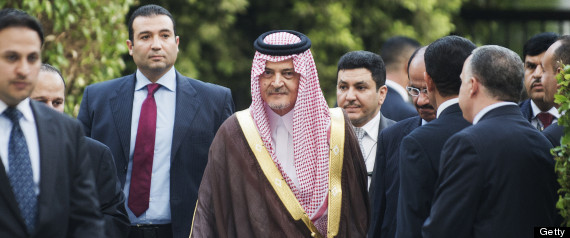
Saudi Foreign Minister Saud al-Faisal arrives to attend an Arab League meeting on Syria on September 1, 2013 in Cairo, Egypt
Arab nations have offered to help pay for any US military intervention in Syria, Secretary of State John Kerry told lawmakers Wednesday as he sought support for missile strikes.
"With respect to Arab countries offering to bear the cost and to assist, the answer is profoundly yes, they have. That offer is on the table," Kerry said as he appeared before a House of Representatives panel.
The offer was "quite significant," he said.
"Some of them have said that if the United States is prepared to go do the whole thing the way we've done it previously in other places, they'll carry that cost. That's how dedicated they are to this."
But he stressed: "Obviously, that is not in the cards and nobody is talking about it, but they are talking about taking seriously getting this job done."
He was appearing before the House Foreign Affairs committee on the second day of the administration's blitz on Capitol hill to persuade lawmakers to approve limited military strikes.
Washington has led charges that the regime of Syrian President Bashar al-Assad unleashed sarin gas on August 21 against the residents of a Damascus suburb killing what a US intelligence report said was some 1,400 people.
President Barack Obama has insisted that Assad's regime has crossed a red line against the use of such horrific weapons and should be punished and his military capability degraded.
But in a sign of the depth of opposition involvement in Syria, anti-war demonstrators held up red-stained hands behind Kerry's head in a silent protest during his testimony.
Lawmakers are now drafting a resolution to go before Congress which would give the US administration a 60-day deadline for military intervention, which could be extended once for 30 more days. It would also bar any American boots on the ground.
Asked if the time limit was acceptable to administration, Kerry said it would be preferable to have "a trigger in there" if Assad used chemical weapons again.
He indicated that a move to give the White House a further 60 days every time such arms were used would be acceptable.
The Senate Foreign Relations Committee meanwhile held a three-hour, classified session to try to thrash out a draft resolution after Republican veteran Senator John McCain appeared to balk at the plan because he felt it did not go far enough.
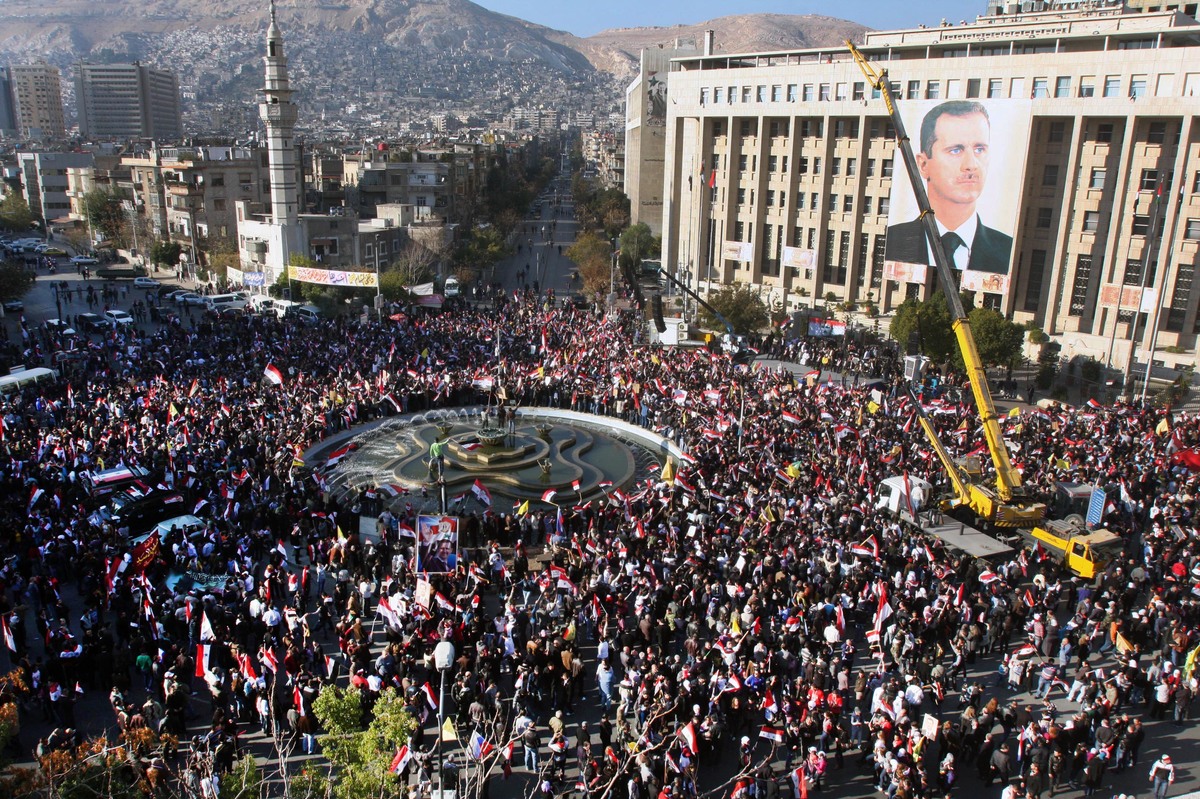
United States slaps sanctions on Syria's intelligence agency and two relatives of President Bashar al-Assad, in Washington's first concrete steps in response to a crackdown on anti-government protests inspired by the "Arab Spring."
Pro-Syrian regime protesters gather during a protest against sanctions, in Damascus, Syria, on Friday Dec. 2, 2011.
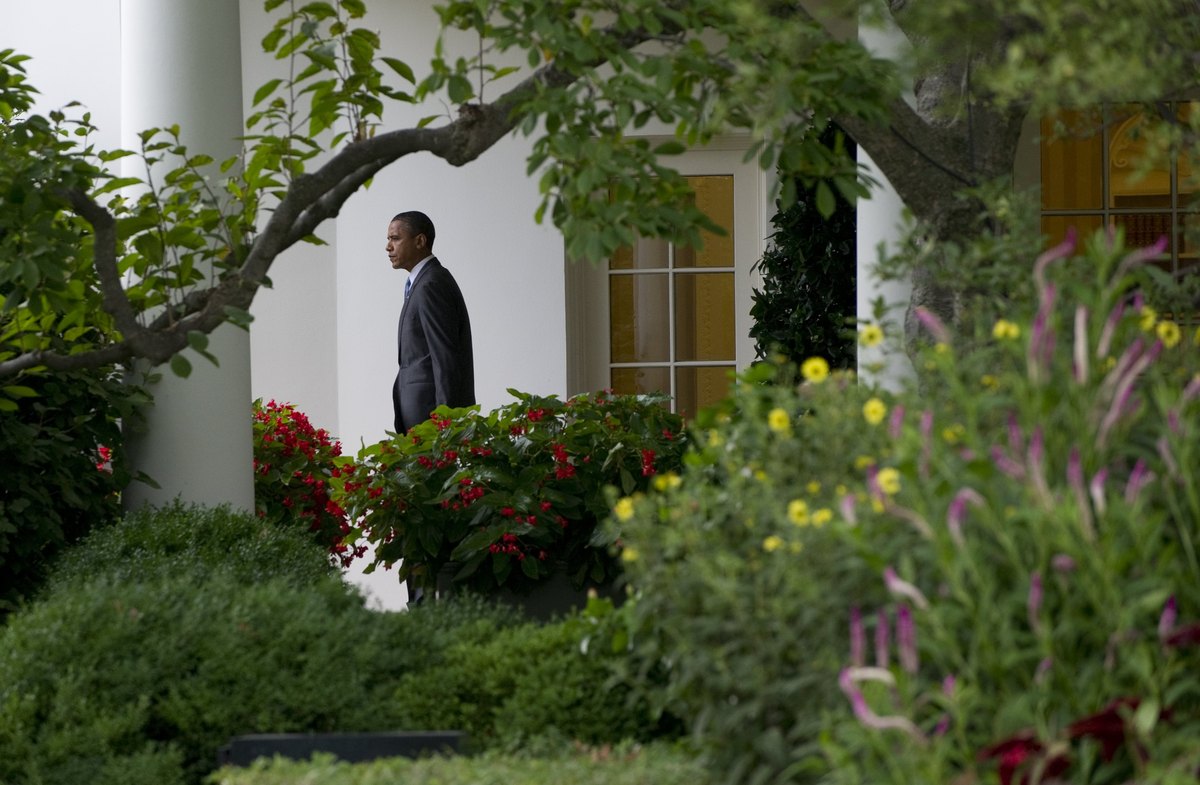
For the first time, Obama calls for Assad to step down, saying: "For the sake of the Syrian people, the time has come for President Assad to step aside." Britain, France and Germany also call for Assad to go.
U.S. President Barack Obama leaves the Oval Office as he walks to Marine One prior to departing from the South Lawn of the White House in Washington, DC, on August 18, 2011. Obama led a chorus of calls by world leaders for Syria's president to step down, as the United Nations warned his regime could be guilty of crimes against humanity.
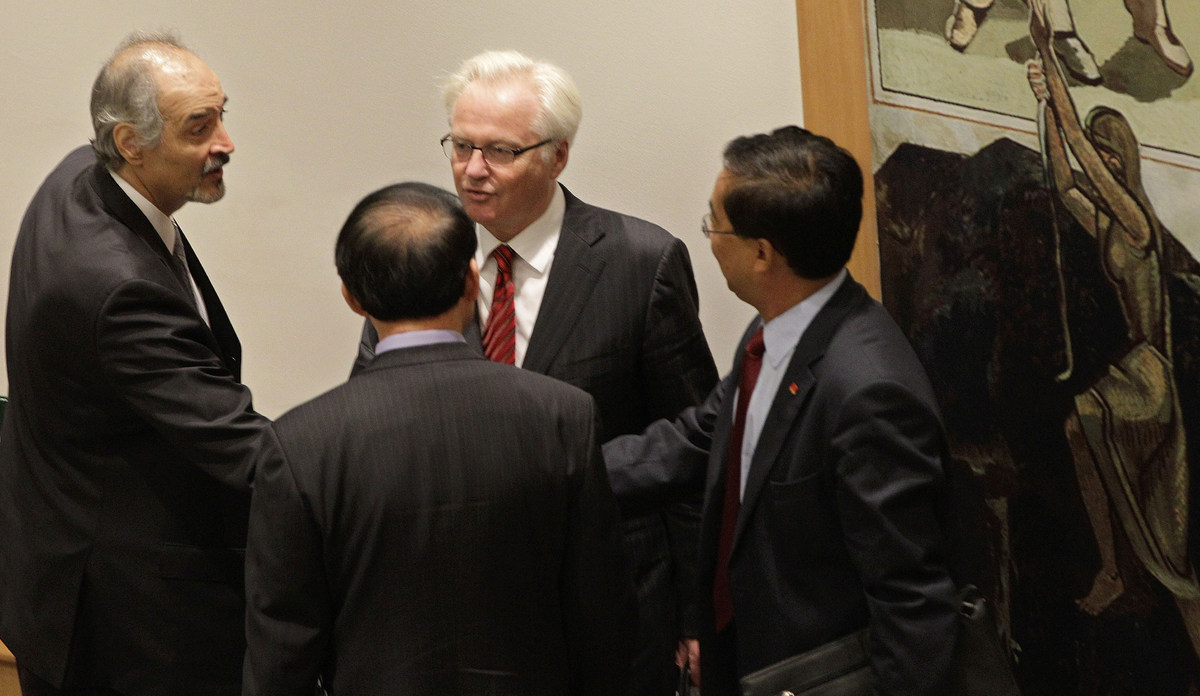
U.S. Ambassador to the United Nations Susan Rice calls the Russian and Chinese vetoes of a U.N. Security Council resolution on Syria "dangerous and deplorable."
Syria's UN Ambassador Bashar Ja'afari, left, thanks a member of the Chinese UN delegation as China's UN Ambassador Li Baodong, second from right, and Russia's UN Ambassador Vitaly Churkin look on, after a Security Council meeting on the situation in Syria at the United Nations in New York, Thursday, July 19, 2012. Russia and China vetoed a United Nations resolution to impose non-military sanctions on Syria
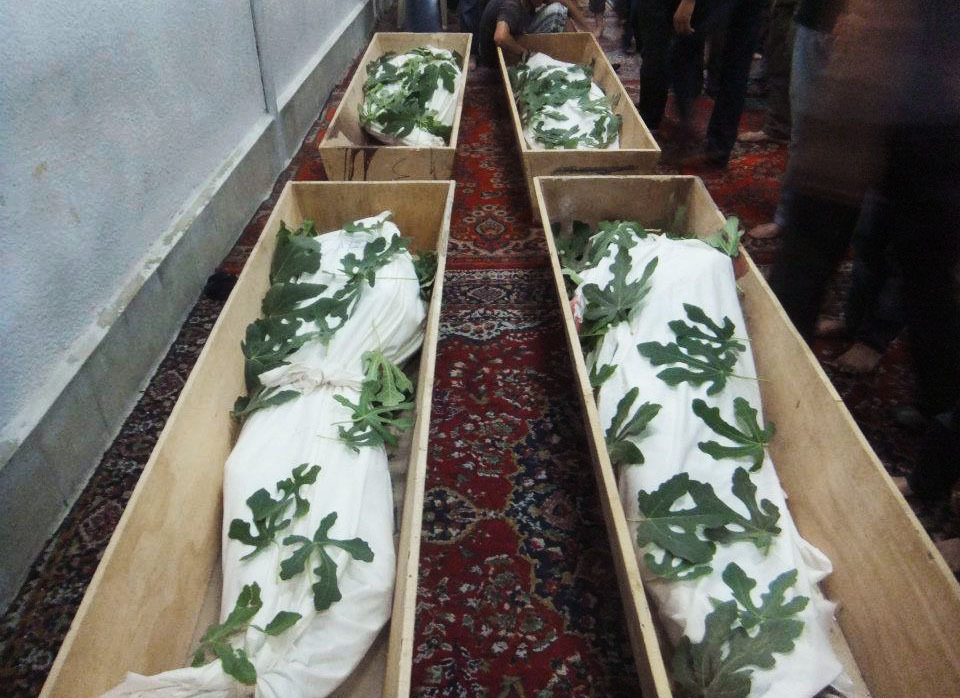
Obama says Assad will be held accountable if he makes the "tragic mistake" of using Syria's stockpile of chemical weapons.
This citizen journalism image provided by Shaam News Network SNN, taken on Tuesday, July 24, 2012, shows bodies of Syrians killed during their funeral procession in the suburb of Daraya, Damascus, Syria.
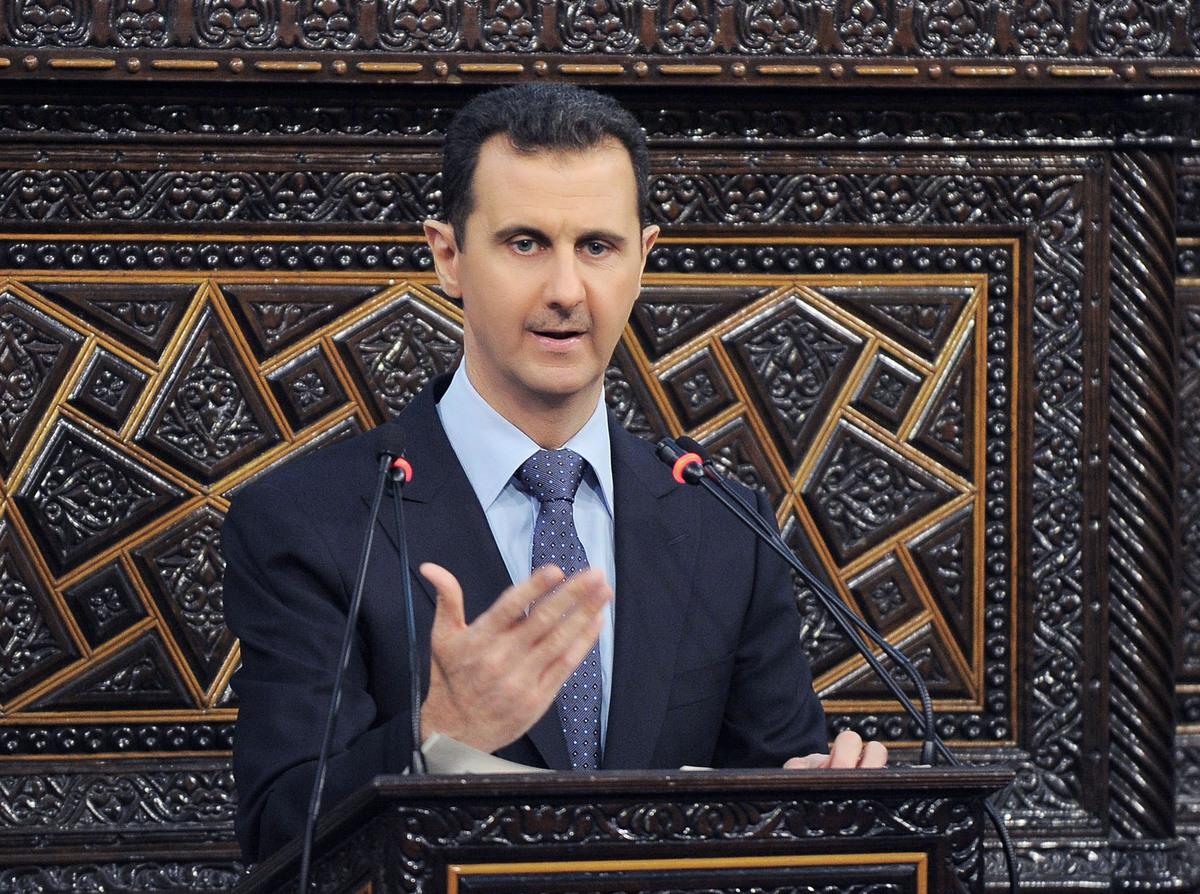
Syria says it could use chemical weapons in response to any "external aggression" but they will not be used in Assad's campaign to crush the uprising in what appeared to be the first time that Syria acknowledges it might possess non-conventional weapons.
In this June 3, 2012 file photo released by the Syrian official news agency SANA, Syrian President Bashar Assad delivers a speech at the parliament in Damascus, Syria.
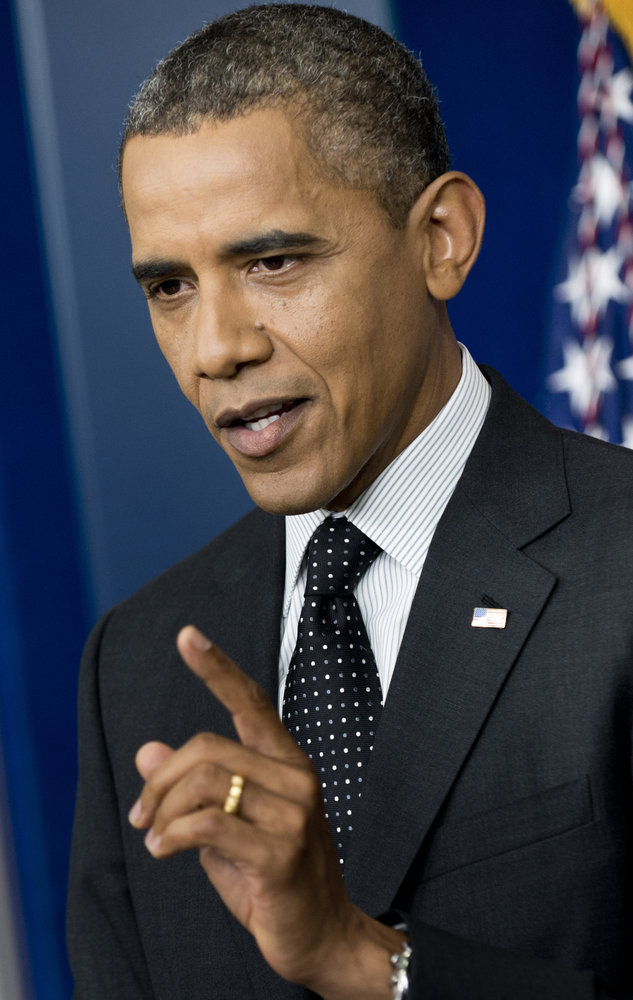
Obama warns Assad that the use or deployment of chemical or biological weapons in his country's conflict would be a "red line" for the United States. "A red line for us is (if) we see a whole bunch of chemical weapons moving around, or being utilized. That would change my calculus," he tells reporters.
U.S. President Barack Obama speaks during a press conference in the Briefing Room of the White House Aug. 20, 2012 in Washington, D.C.
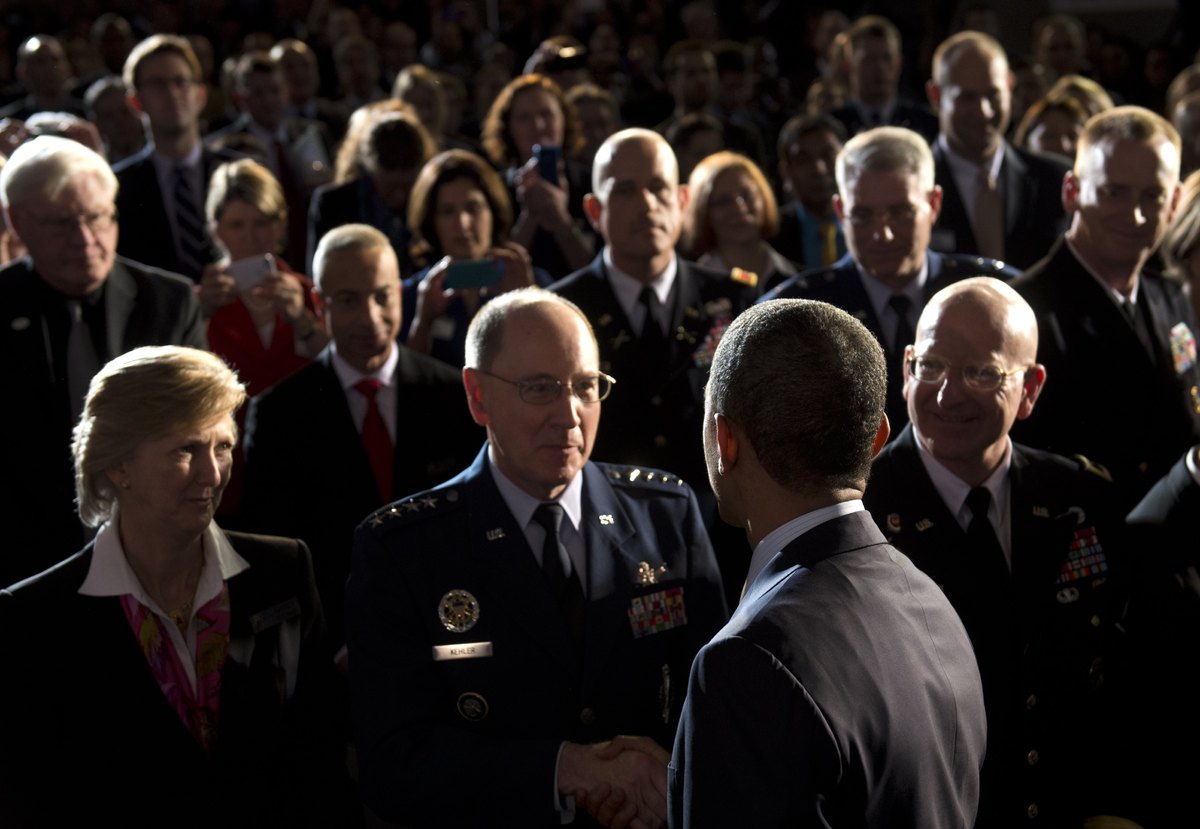
Obama warns Assad "the world is watching" and there would be consequences if he uses chemical weapons against Syrian opposition forces. "The use of chemical weapons is and would be totally unacceptable and if you make the tragic mistake of using these weapons, there will be consequences and you will be held accountable," he says in a speech to a gathering of biological, chemical and nuclear weapons proliferation experts.
U.S. President Barack Obama greets members of the military and military community after speaking during the Nunn-Lugar Cooperative Threat Reduction (CTR) symposium at the National Defense University in Washington on December 3, 2012. Obama directly warned Syria's President Bashar al-Assad that he would face 'consequences' if he made the 'tragic mistake' of turning chemical weapons on his own people.
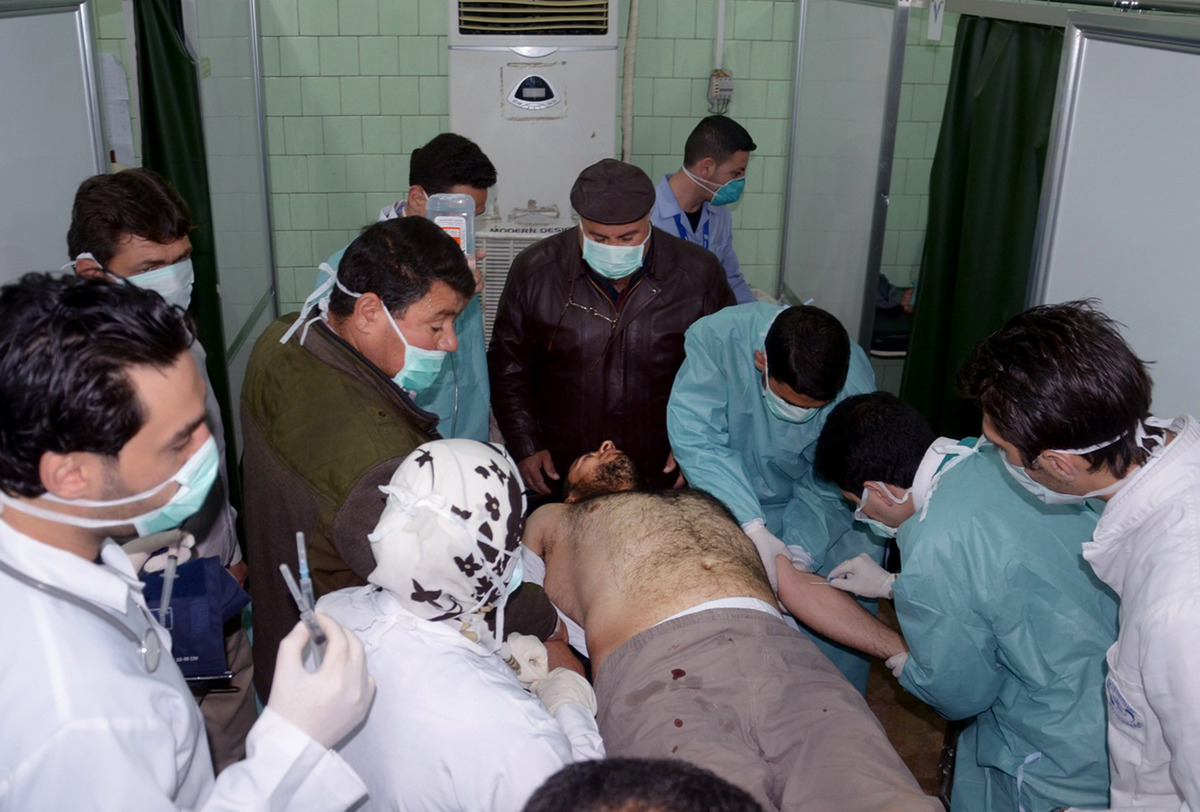
Syria's government and rebels accuse each other of launching a deadly chemical attack near the northern city of Aleppo in what would be the first use of such weapons in the two-year conflict.
In this Tuesday March 19, 2013 file photo released by the Syrian official news agency SANA, a Syrian victim who suffered an alleged chemical attack at Khan al-Assal village according to SANA, receives treatment by doctors, at a hospital in Aleppo, Syria.
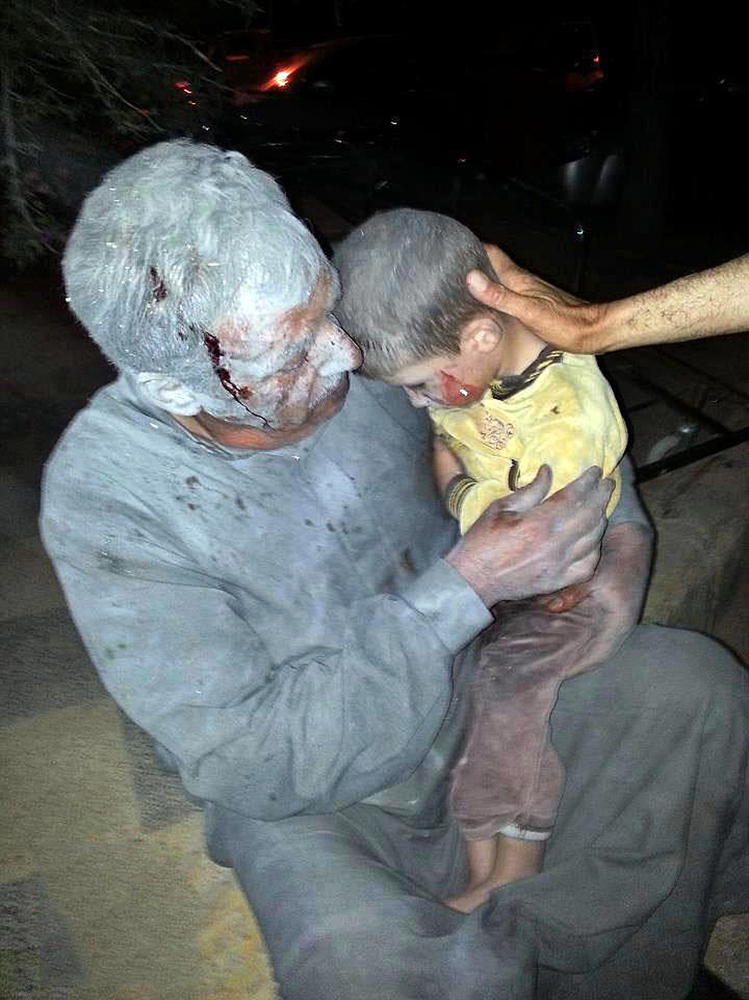
Obama warns Assad that any use of chemical weapons in Syria's civil war would be a "game changer" but remains cautious about endorsing intelligence assessments that such weapons had been deployed.
This citizen journalism image taken on Thursday, April 25, 2013 and provided by Edlib News Network, ENN, which has been authenticated based on its contents and other AP reporting, shows a wounded Syrian man holding his injured son after an air raid on the northwestern town of Saraqeb in the province of Idlib, Syria.
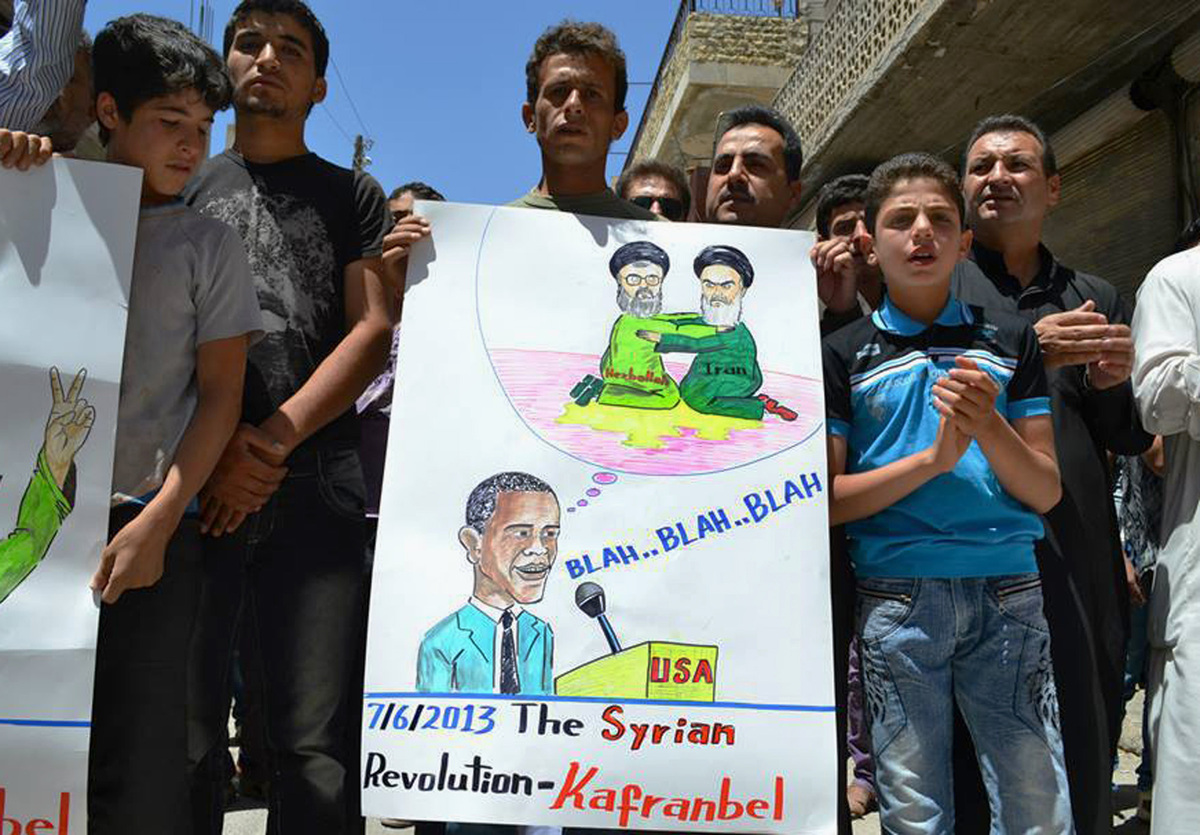
Syrian government troops backed by guerrillas from Lebanon's Hezbollah seize the western village of Buwayda to end rebel resistance around the strategically important town of Qusair in a success for Assad forces. The involvement of Iran-sponsored Hezbollah and gains by Syrian forces prompt renewed U.S. debate on arming Assad's opponents.
In this citizen journalism image provided by Edlib News Network, ENN, anti-Syrian regime protesters hold a placard with a caricature on it against Hezbollah leader Sheik Hassan Nasrallah, top left, Iran's Supreme Leader Ayatollah Ali Khamenei, top right, and U.S. President Barack Obama, below, during a demonstration at Kafr Nabil town in Idlib province, northern Syria, Friday, June 7, 2013.
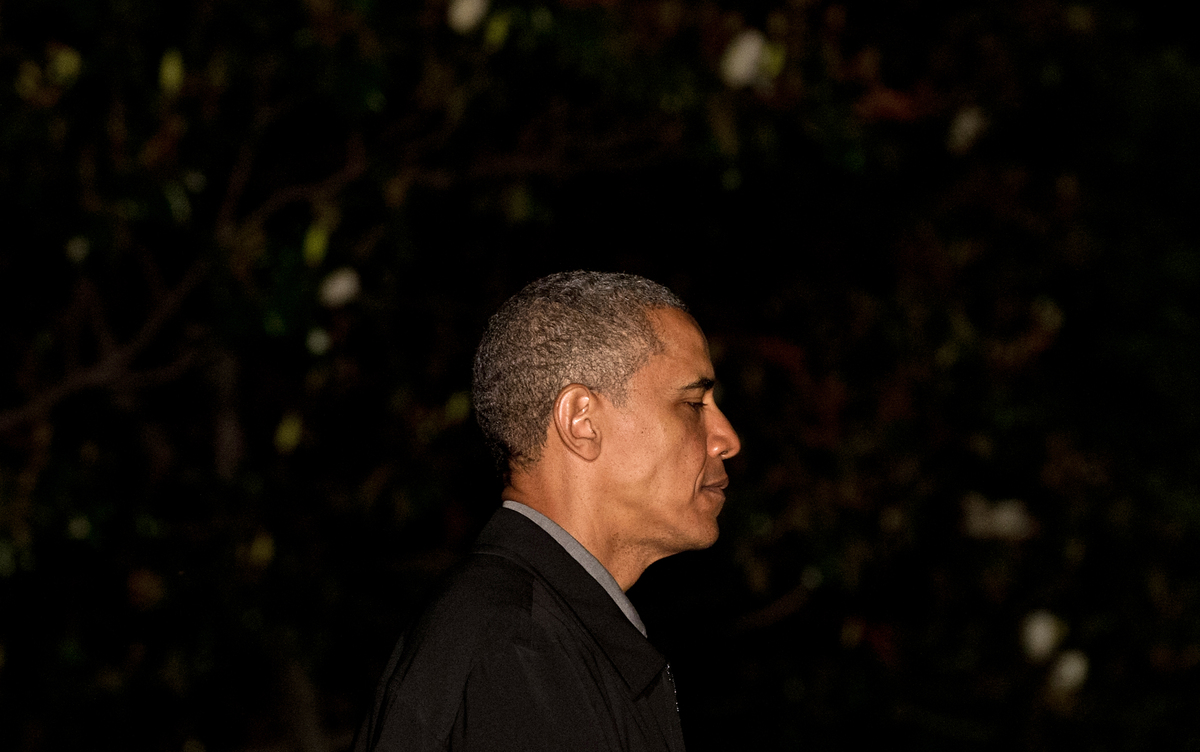
After two months of caution about reports Syria used chemical weapons, the White House says U.S. intelligence agencies have concluded that Assad's forces indeed used such weapons, including the nerve agent sarin, on a small scale against the opposition multiple times, killing 100 to 150 people. The White House vows to increase military aid to the Syrian rebels.
U.S. President Barack Obama departs the White House on June 16, 2013. Obama heads to Belfast for the G8 summit where he will meet Russia's Vladimir Putin on June 17 for potentially vexatious talks, as both leaders now offer open military backing to rival sides in Syria's civil war.
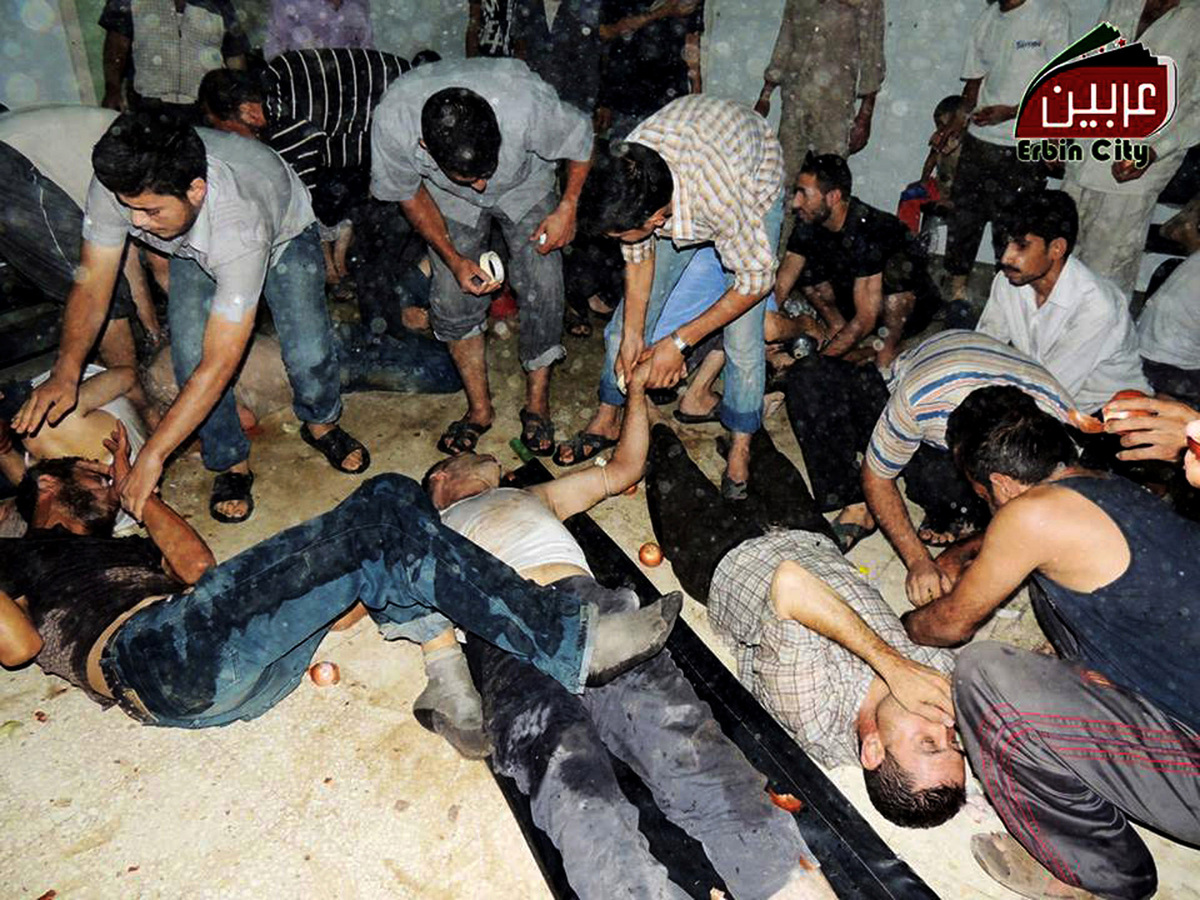
Syria's opposition accuses government forces of gassing hundreds of people by firing rockets that released deadly fumes over rebel-held neighborhoods near Damascus, killing men, women and children as they slept. If confirmed, it would be the worst chemical weapons attack in 25 years.
This Aug. 21, 2013, file citizen journalism image provided by the Local Committee of Arbeen which has been authenticated based on its contents and other AP reporting, shows Syrian citizens receiving treatment after an alleged poisonous gas attack fired by regime forces, according to activists in Arbeen town, Damascus, Syria
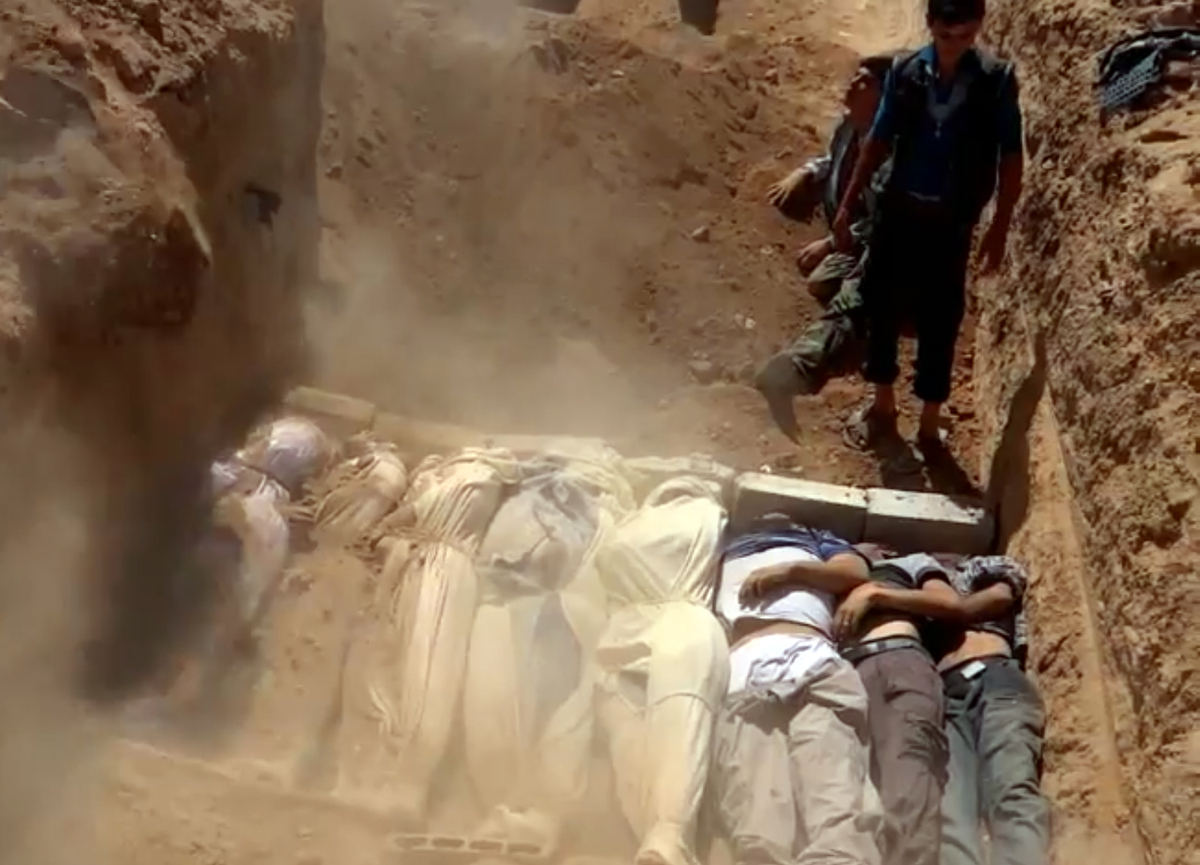
Secretary of State John Kerry says all nations must stand up for accountability on the "undeniable" use of chemical weapons in Syria, where he said the government maintained custody of such weapons. "Let me be clear: The indiscriminate slaughter of civilians, the killing of women and children and innocent bystanders by chemical weapons is a moral obscenity."
An image grab taken from a video uploaded on YouTube by the Local Committee of Arbeen on Aug. 21, 2013 allegedly shows Syrians covering a mass grave containing bodies of victims that Syrian rebels claim were killed in a toxic gas attack by pro-government forces in eastern Ghouta and Zamalka, on the outskirts of Damascus.
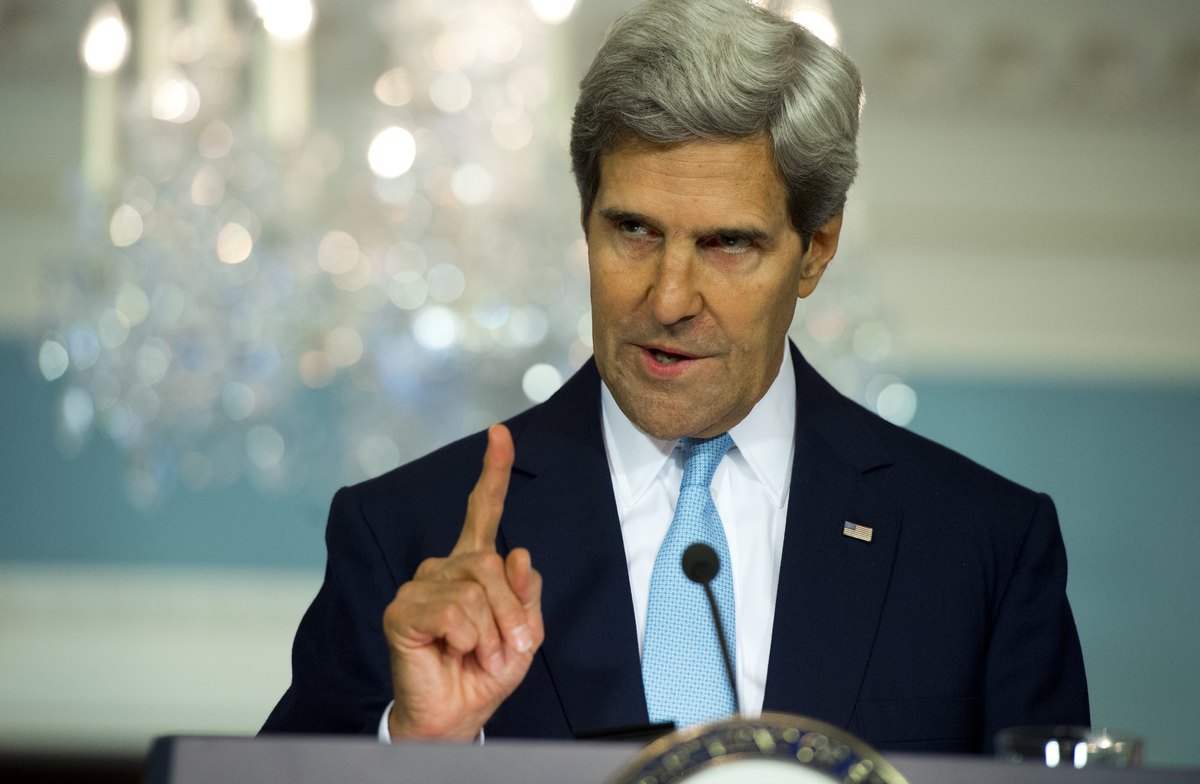
In separate statements, Obama and Kerry harshly condemn the Syrian government, saying the Aug 21. attack cannot go unpunished. Obama says: "We cannot accept a world where women and children and innocent civilians are gassed on a terrible scale," while Kerry calls Assad "a thug and a murderer." But they say any military response by the United States would be measured to avoid open-ended commitments.
U.S. Secretary of State John Kerry speaks about the situation in Syria from the Treaty Room at the State Department in Washington, DC on August 30, 2013.
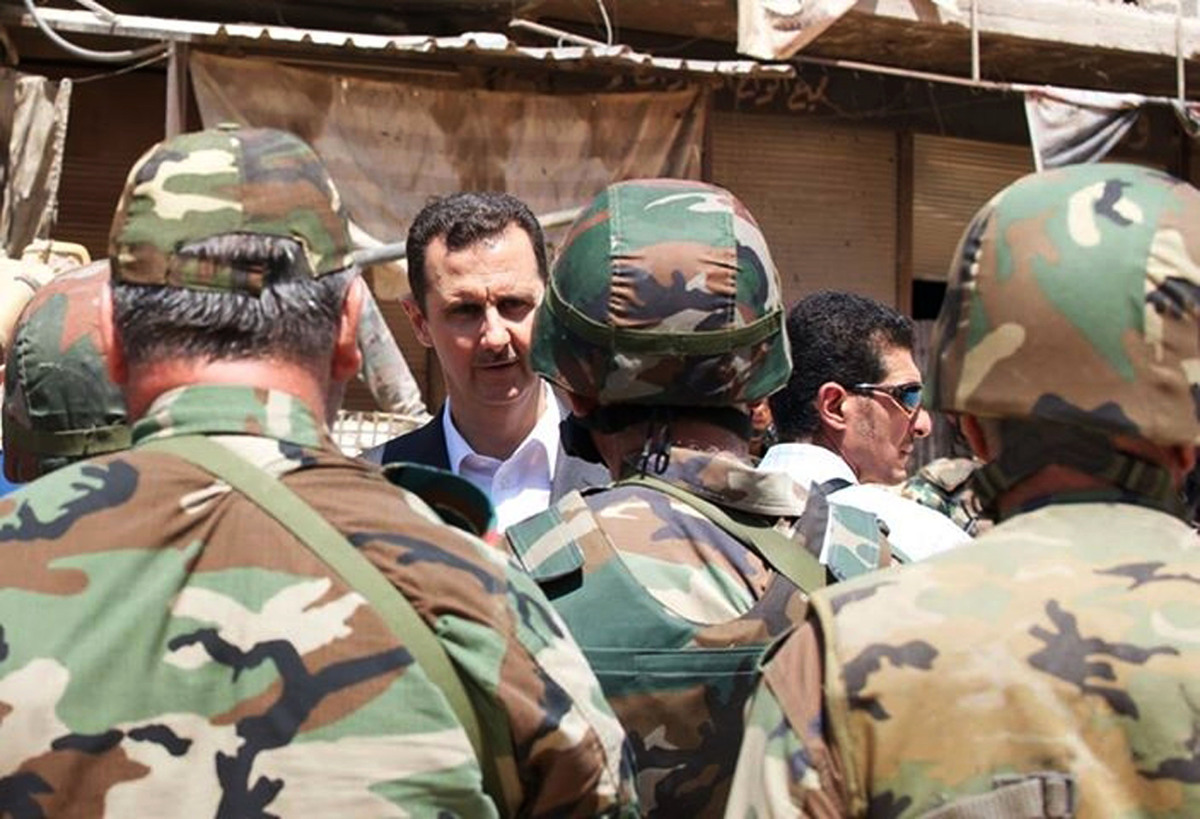
U.S. intelligence agencies publicly disclose some of the information that led to a "high-confidence" assessment that the government of Assad carried out a chemical weapons attack on neighborhoods outside Damascus, causing the deaths of an estimated 1,429 Syrians on Aug. 21.
In this August 1, 2013, file photo, posted on the official Facebook page of the Syrian Presidency, purports to show Syrian President Bashar Assad talking with soldiers with during Syrian Arab Army day in Darya, Syria.
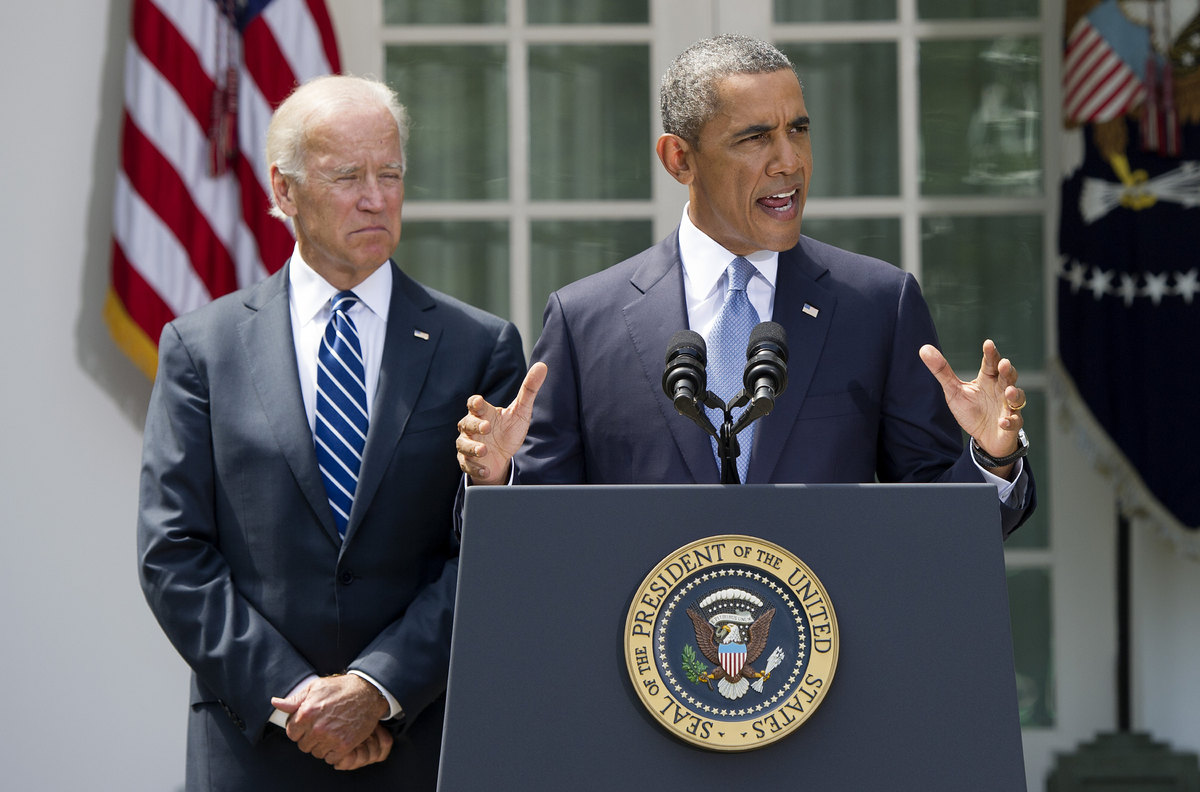
Obama says he had authorized the use of military force to punish Syria, with military assets to carry out a strike in place and ready to move on his order, but he would first seek authorization from Congress. "Today I'm asking Congress to send a message to the world that we are ready to move as one nation," he said.
U.S. President Barack Obama speaks about Syria from the Rose Garden at the White House in Washington, DC, on August 31, 2013, with Vice President Joe Biden. Obama said Saturday he will ask the U.S. Congress to authorize military action against Syria, lifting the threat of immediate strikes on President Bashar al-Assad's regime.

No comments:
Post a Comment
Note: Only a member of this blog may post a comment.